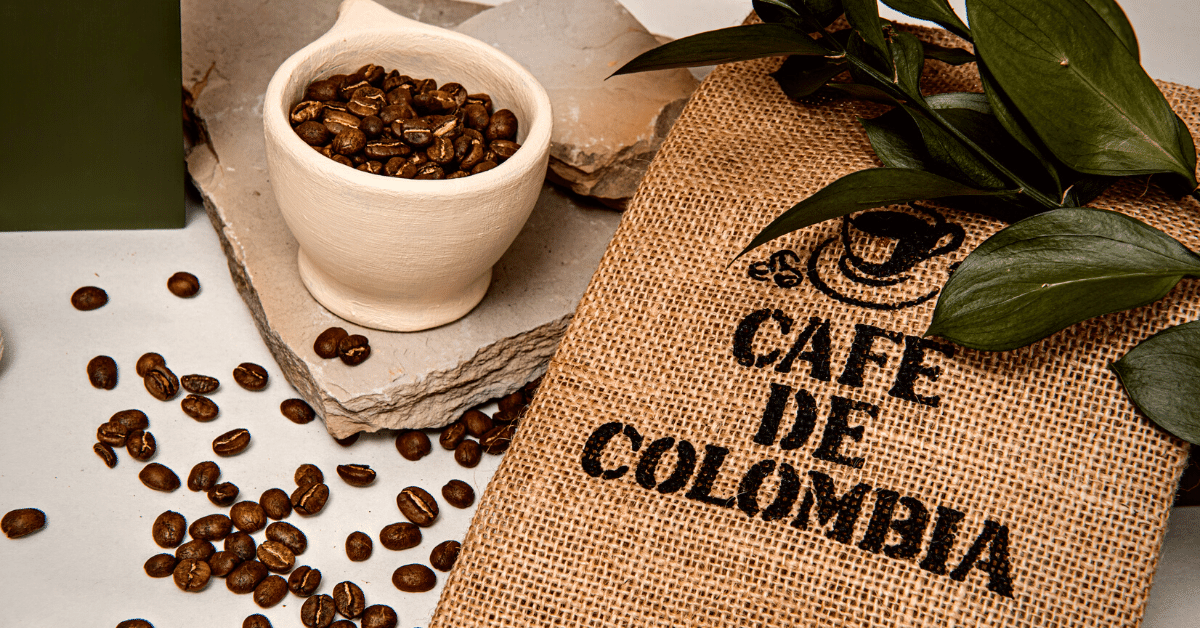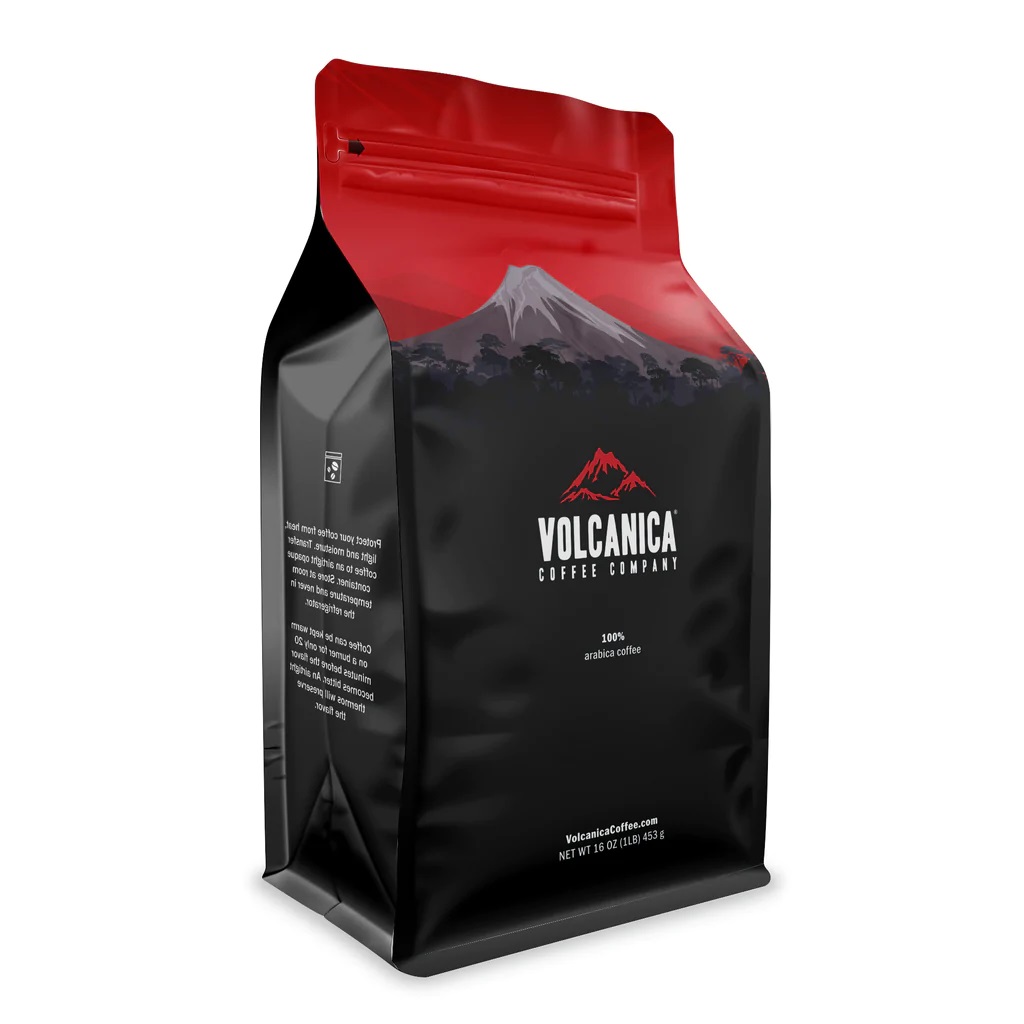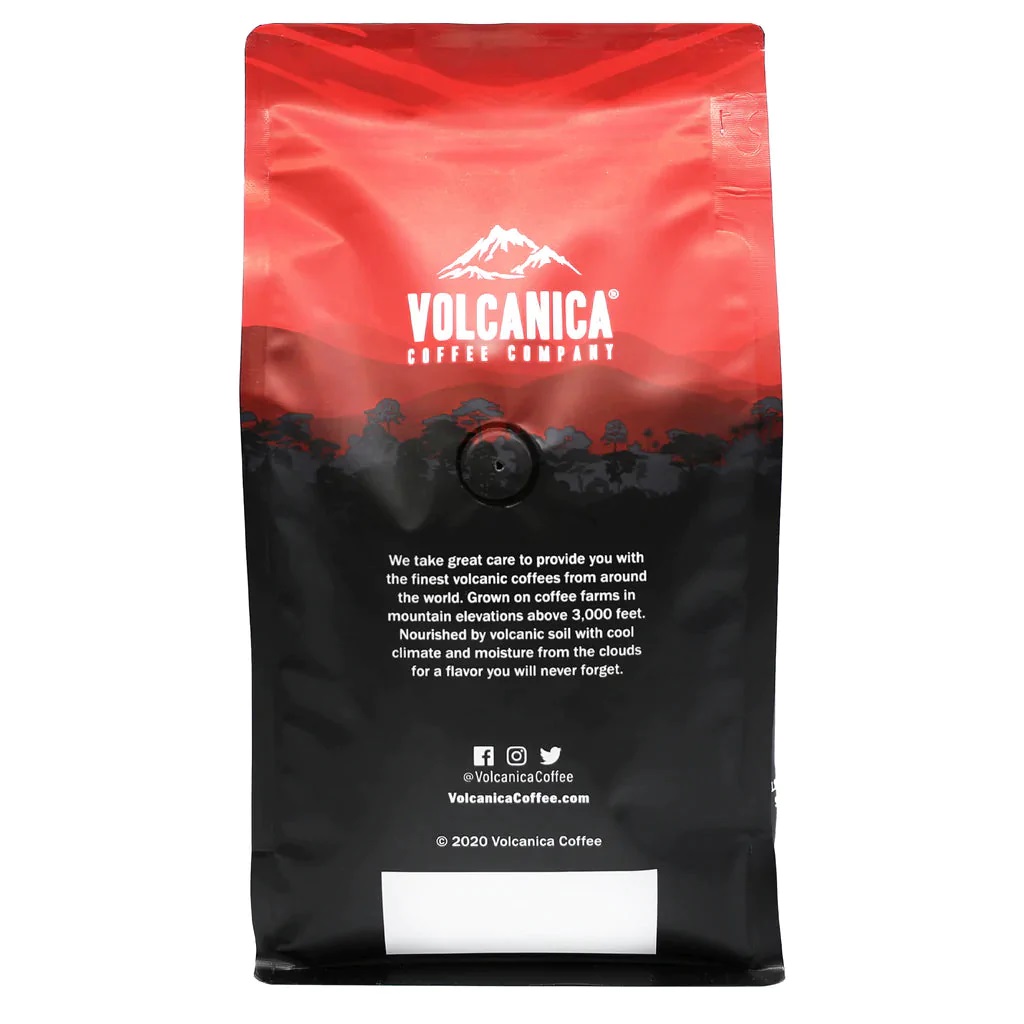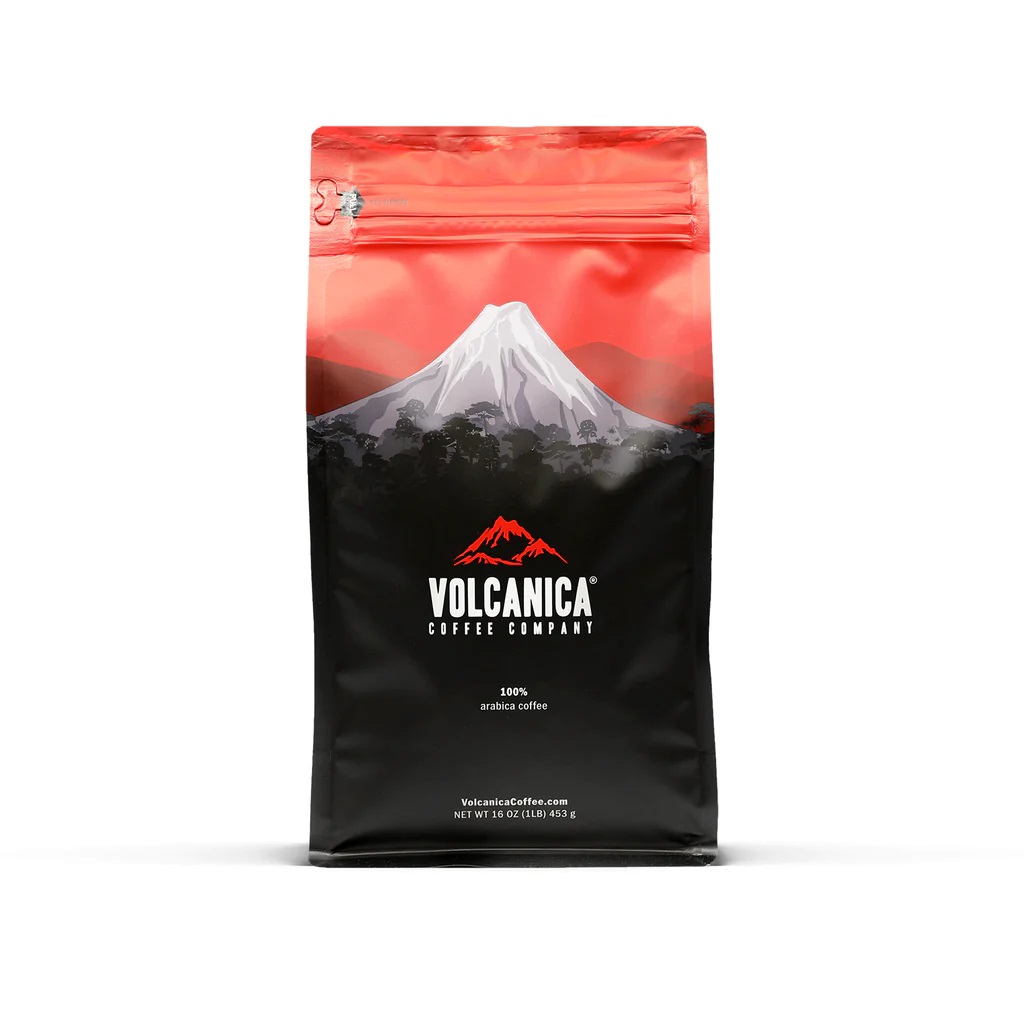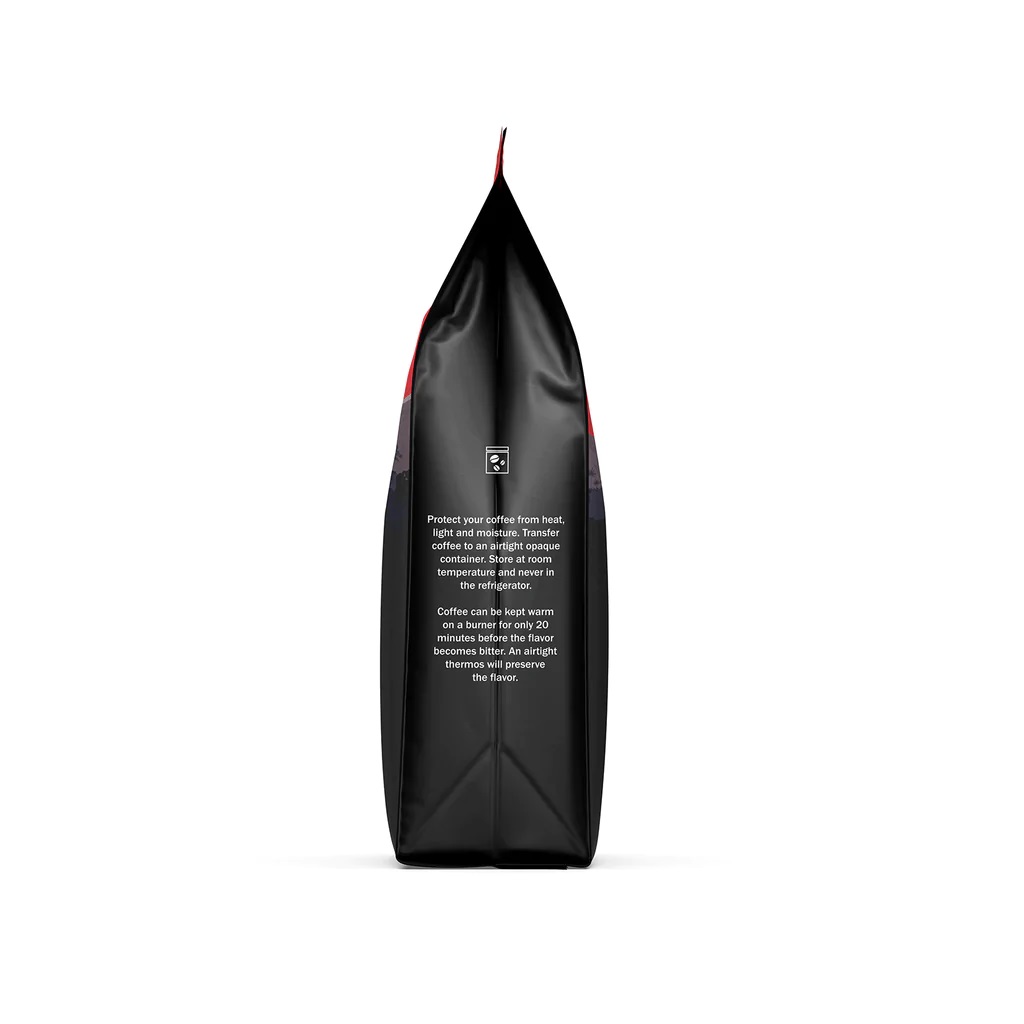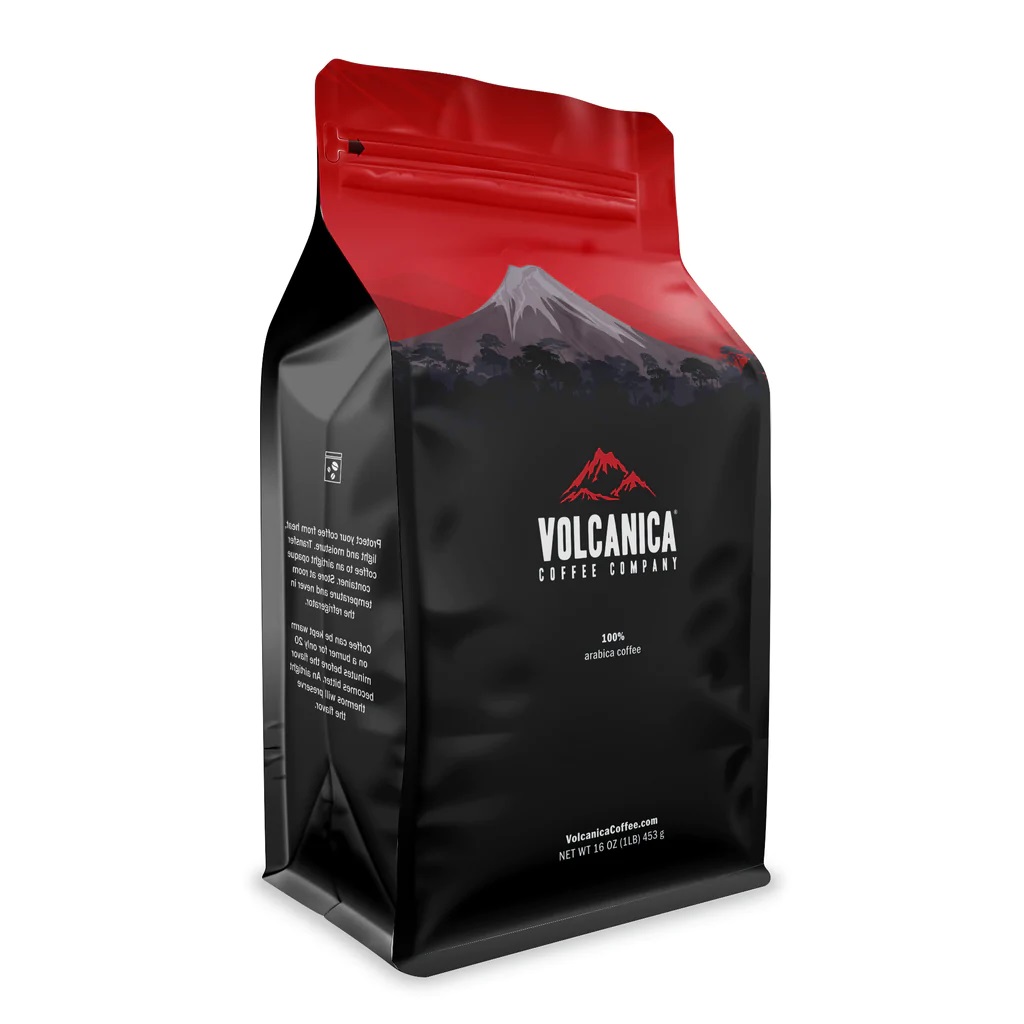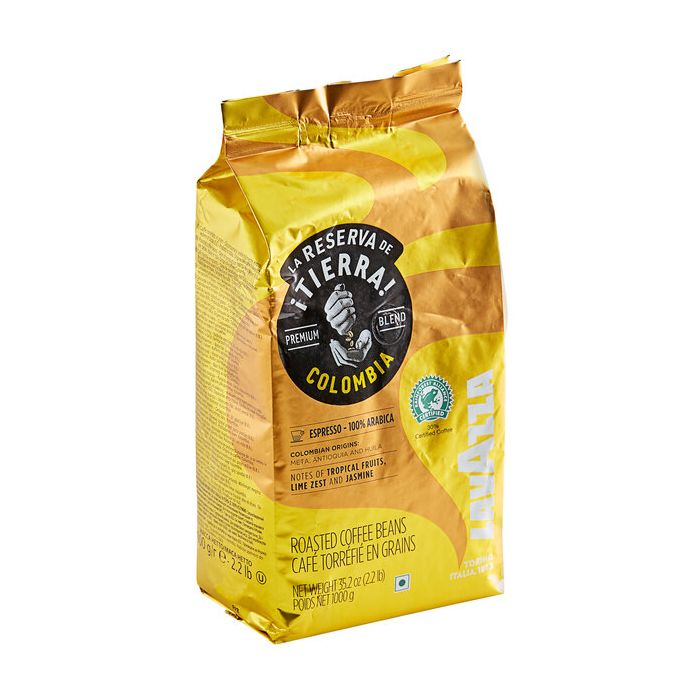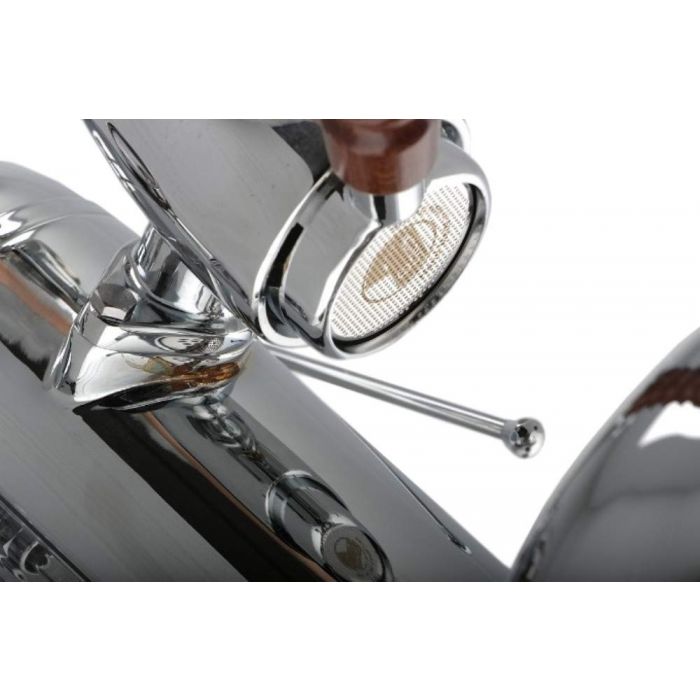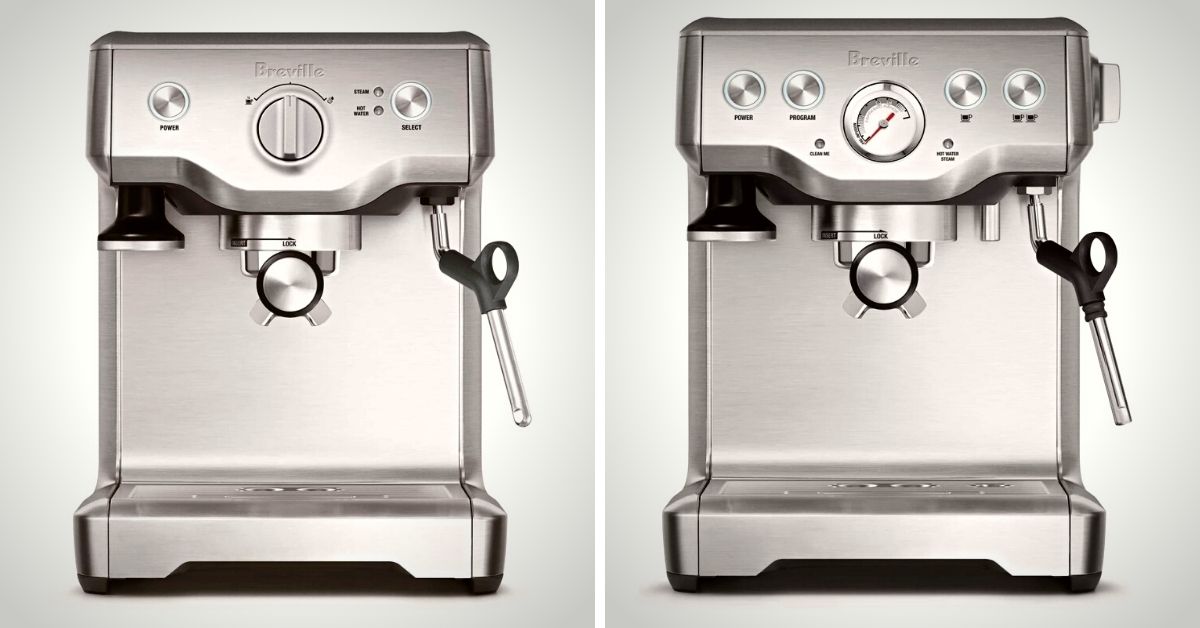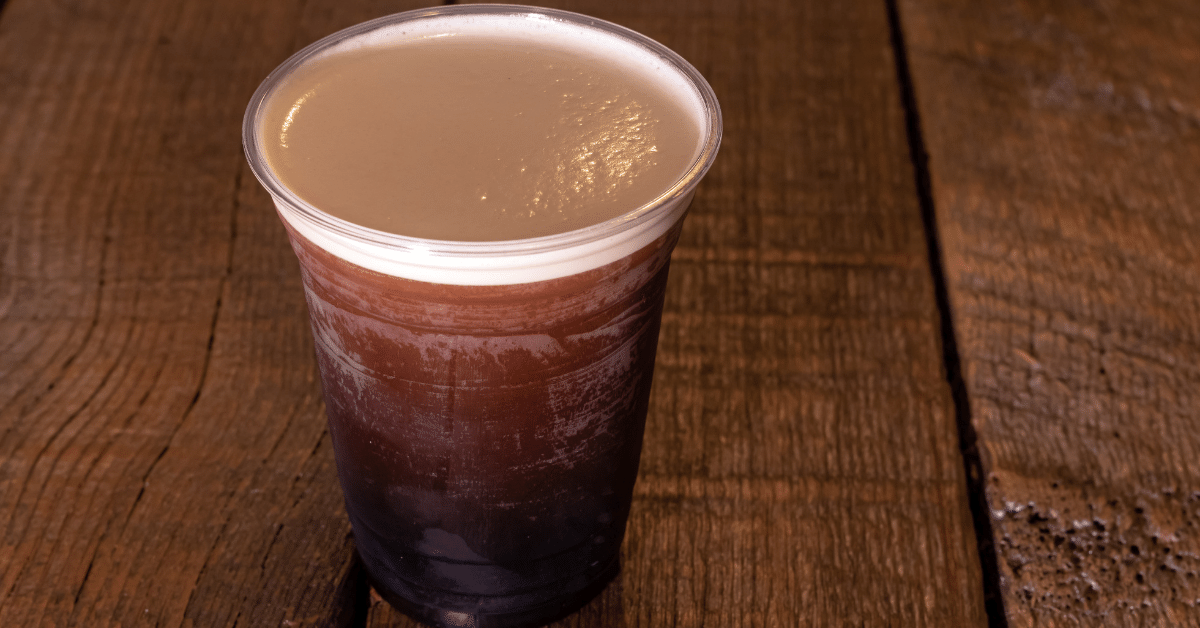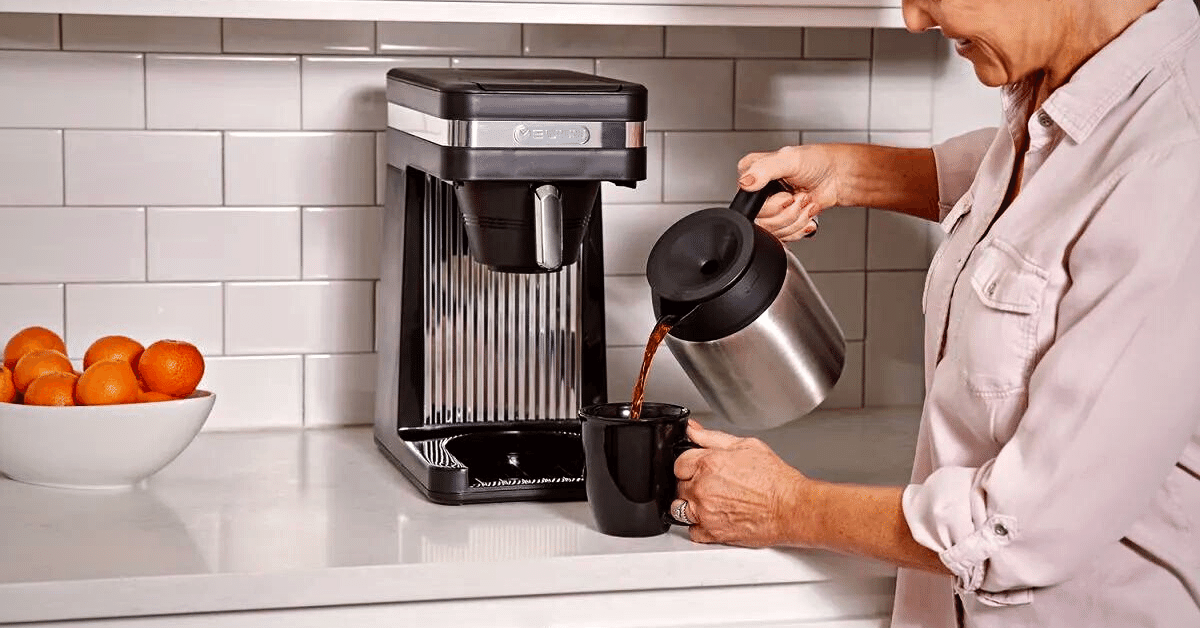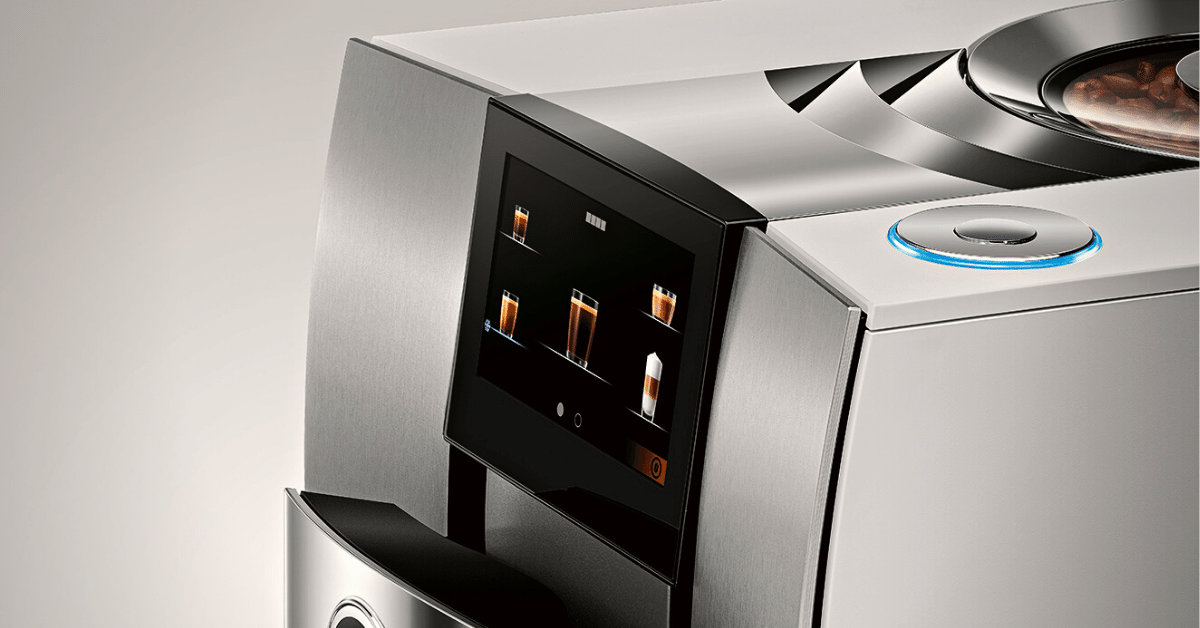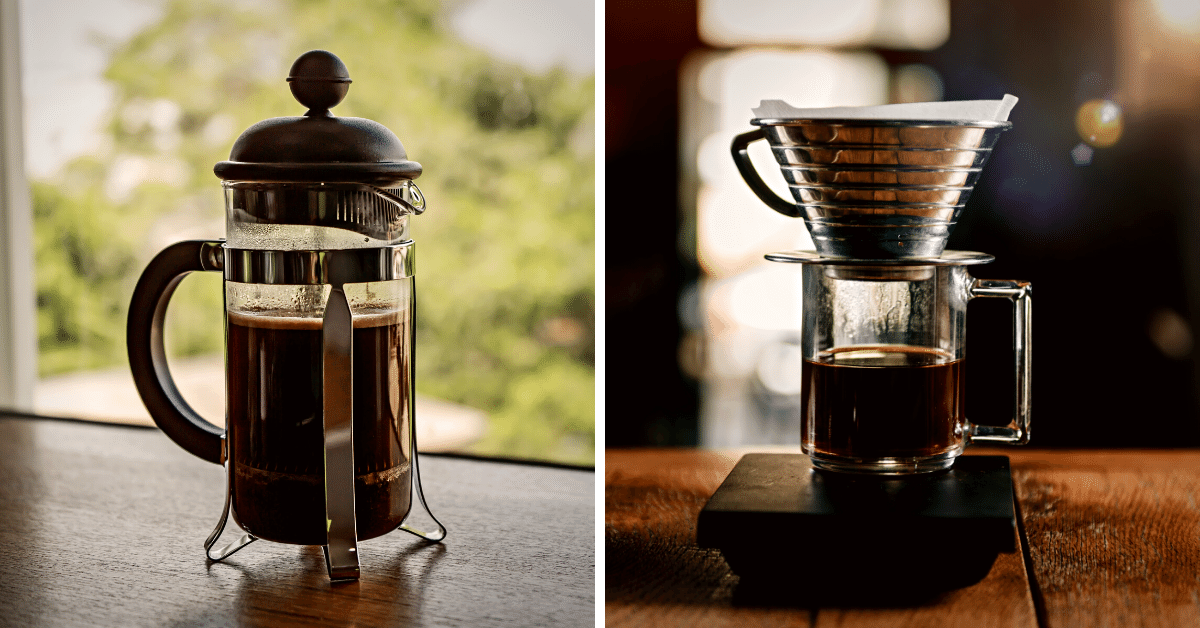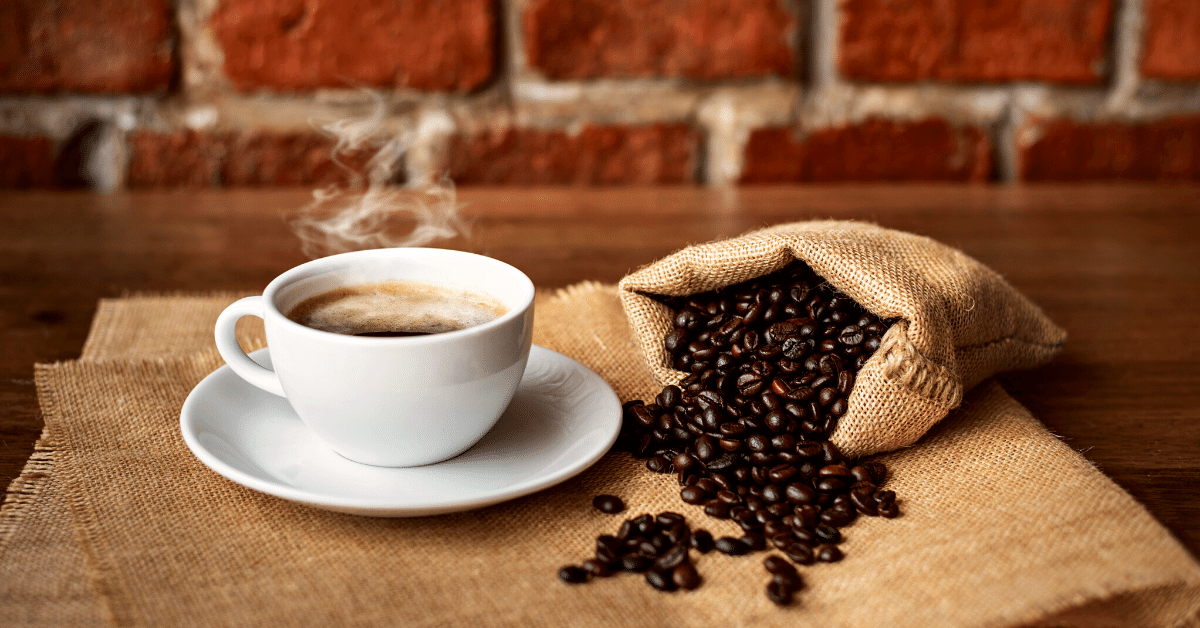In a rush? Our top choice is the Volcanica Colombian Supremo!
Colombia is one of the biggest coffee-producing countries in the world.
But choosing Colombian coffee beans can be tricky.
In this article, I’ll break down the best Colombian coffee.
I’ll give you a rundown of my favorites and then offer a few tips and tricks for picking out a good one for you.
Grown high in the Colombian Andes, expect pleasant acidity, a smooth finish, nutty overtones, and rich medium to full body coffee.
1. Volcanica Colombian Supremo
Sometimes great coffee comes in the middle of the road, medium roast bags.
Kind of like this Colombian Supremo Volcanica coffee.
This is a medium roast coffee bean, which means you’ll still get some unique Colombian flavors while also finding a medium body and mellow acidity.
It has bittersweet, chocolate, caramel, and a hint of orange. I find that a hint of orange is pretty characteristic of Colombian coffees, and this one is no different.
This is a washed-process coffee. That basically means that the coffee was soaked in water to get all the fruit off the actual coffee bean.
Is it better than other processes? That’s up to personal taste. But I will say that generally washed coffees are mellower, shallower bodied, but do have really crisp and clear flavors.
This is a certified FairTrade and Kosher coffee.
Because it’s a medium roast with clear flavors, you would need to brew it pretty strong for it to pair well with cream or sugar.
I’d recommend drinking this coffee black.
Pros
- The medium roast has unique flavors and a mellow body, making a good middle ground
- It has notes of chocolate, caramel, and orange, which are classic Colombian coffee flavors
- It’s a washed process coffee, giving it a clear and crisp flavor profile
- It’s a FairTrade and Kosher-certified coffee, so you can be sure the farming and roasting are held to a high standard
Cons
- It won’t go great with cream and sugar unless you brew pretty strong
2. Colombian Peaberry
Peaberry coffee is always a treat.
Despite what the name sounds like, peaberry coffee beans are actually slightly bigger than normal coffee beans.
Peaberry coffee is a mutation in the coffee cherry where only one bean develops instead of the regular two.
This happens in about 5% of the crop each year.
What makes it special? Well, peaberry beans can have a fuller and more developed aroma when compared to regular coffee beans.
And this coffee is no different.
It’s still a medium roast and Kosher certified. And it has notes of florals, fruits, and hints of cocoa and cinnamon.
But if you ask me, it tastes like great Colombian coffee. The floral notes dominate the cup, with mellow citrus fruits supporting the roundness and fullness of the peaberry beans.
That said, peaberry coffees are usually more expensive. And if you don’t have a developed palate and have a reliable and consistent brewing method, then peaberry isn’t worth the extra money.
But it’s still a delicious coffee. The washed process brings out good flavors and makes it a quality coffee.
Pros
- Peaberry coffees are unique because of the mutation and the scarcity, so it’s a treat to have a peaberry
- It’s Kosher certified, so the farming and roasting processes are clean
- Floral notes with citrus fruit aroma make this a rounded coffee
- The medium roast gives it a mellow and crisp flavor that’s easy to brew
Cons
- Peaberry coffees are expensive if you aren’t brewing precisely and have a good palate
3. Volcanica Colombian Supremo Decaf
Ah, decaf coffee.
It’s polarizing. If you like it, you really like it. And if you don’t drink it, well, then you barely ever think of it.
But sometimes, a decaf coffee comes around that just flat-out tastes good.
This is one such decaf coffee.
What makes it so good? The decaffeination process. There are two processes for decaffeination: with chemicals or with water.
Most decaf coffees use chemicals and leave a sterile, washing-liquid taste. But it’s cheaper and quicker.
Water-processed decaf coffees retain a lot more of their natural aroma and stay true to the country of origin.
The Supremo Decaf uses a water process, and it retains a lot of good flavors like florals and light sugar.
It has a pleasant acidity with nutty backgrounds and a smooth finish.
That said, it’s still a decaf, so you’ll lose a little of the rounded Colombian flavor in your cup. But it is a really amazing decaf coffee.
Plus, it’s Kosher certified.
Pros
- The Swiss Water decaf process means this coffee retains a lot of good Colombian flavors
- It has a pleasant acidity and smooth finish without tasting chemically
- It’s Kosher certified, so you can be sure it hasn’t been processed with chemicals
Cons
- It’s a lighter-bodied coffee, so it doesn’t pair too well with cream or sugar
- It’s still a decaf coffee, so you’ll lose some classic Colombian aroma
4. Colombian Geisha
If you’ve heard of geisha coffees before, chances are you know how expensive they can be.
But chances are also pretty good that if you’ve tasted geisha coffees, you might understand why they’re so expensive.
What is geisha coffee? It’s a type of coffee bean that comes from a plant native to Gesha, Ethiopia. But those plants are all over the world now.
And some of the best geisha beans come from Colombia.
This Volcanica Geisha is a great one. It comes from a micro-lot in the Huila Milagros region and is a light roast coffee.
It has some classic geisha flavors like Apple Jacks (yes, like the cereal) and tropical fruits.
Because geisha coffees are so special and have such unique flavors, most coffee professionals will tell you it’s a crime to mix in cream and sugar.
Now, you’re probably asking yourself if this coffee is worth it for how expensive it is.
My honest answer? Probably not. Unless you have your coffee setup dialed with scales, kettles, different brewers, maybe a water filter, etc.
If you don’t have a high-quality coffee brewing setup, you’re better off paying up for a cup of geisha at your local specialty coffee shop instead.
Pros
- A phenomenal aroma that explodes in your mouth
- Can taste like you’re drinking cereal, which gives it a rounded and complete profile
- Micro-lot farms, which means it comes from small producers
Cons
- Wildly expensive, which makes it not worth it unless you really know what you’re doing
5. Lavazza Tierra Colombia
Lavazza knows coffee. They’ve been in the coffee game a long time. And this Colombian blend is another great addition to their line.
It’s a medium roast Arabica coffee blend that combines Colombian beans from two different regions.
The result is a tasty coffee with a fruity aroma and a fuller body.
It has notes of nuts and dark cocoa, with the acidity of tropical fruit and lime.
Because of the balance of this coffee, it’s a wonderful morning brew that I think pairs nicely with cream and sugar.
The downside is that it’s a blend of Colombian coffees. That by itself isn’t necessarily a bad thing. But when we talk about origin countries, we usually mean the specific characteristics of a single country.
When we blend regions within a country, we lose some of the specific farm’s characteristics and are left with a more generic-tasting coffee.
That said, if you’re looking for a true Colombian coffee that’s a great morning drinker with cream and sugar, this is the coffee for you.
Pros
- Arabica coffee beans blend means you get a clean and delicious cup
- Notes of nuts, dark cocoa, and tropical fruit make this a rounded and balanced cup of coffee
- The balance of this coffee means it pairs really well with cream and sugar
Cons
- It’s a blend of Colombian coffees, meaning you lose some of the flavors unique to specific farms
6. Koffee Kult Colombia Huila
This Koffee Kult coffee comes from the Huila region. It’s a famous region in Colombia known for producing high-quality coffee beans.
This coffee is no different.
It’s a small batch of roasted coffee using profiles instead of presets. Basically, that means each batch of green coffee beans is tested and the roast adjusted to bring out the right flavors.
It’s a medium roast coffee, so that means it will have a heavier body with a smooth and bright finish.
It has notes of cinnamon and orange. Plus, it’s a fully washed coffee. That gives each cup a crisp and full profile.
If you’re looking for a versatile coffee that’s both a morning drink and can also make good espresso, this coffee is for you.
The fact that this coffee is a small batch means that it comes from family-owned farms. And while this coffee might not be FairTrade certified, that doesn’t mean it isn’t a good conscious buy.
The only downside is that because Koffee Kult is a larger roaster, you don’t get the info on which farm the coffee is from. This means that from bag to bag, there might be a little difference in flavor.
Pros
- Small batch roasted, so each batch is tested before being packaged
- Notes of cinnamon and orange, which makes it a classic Colombian flavor profile
- Fully washed process, which gives each cup a crisp and full flavor
- It’s really versatile and tastes good as a morning brew or even espresso
Cons
- Taste can change from bag to bag because of the size of the roaster
7. Java Planet Colombian Organic
This Java Planet Colombian is a fine coffee. But it’s nothing special.
It’s certified Organic and Rainforest Alliance.
And yes, it does have the classic Colombian body and fruit notes. And it has low acidity.
But it’s roasted with a one-size-fits-all profile. Java Planet doesn’t take the time to craft a roasting profile for each batch of new beans.
While that isn’t ideal for specific flavor profiles, it does mean it’s a great sipping coffee. It pairs well with cream and sugar and even tastes good when brewed in a pot instead of cup by cup.
I wouldn’t recommend this coffee to someone who is looking for a great example of Colombian coffee. But I would recommend this to someone looking for Colombian coffee to put in their morning pot.
Pros
- USDA Organic, Rainforest Alliance, Bird Friendly coffee, so they take care that this coffee is sustainable
- Low acidity, which is great for someone looking for a stomach-friendly coffee
- Still has overall Colombian characteristics of full body and fruit flavors
- Pair really well with cream and sugar, which makes it a good morning sipper
Cons
- Big batch roasted, so you lose a lot of the specific flavors unique to each batch of beans
8. Juan Valdez Coffee Organic Cafe
Juan Valdez Colombian coffee is a great choice if you are looking for organic and fair trade beans that at the same time don’t lack quality. This coffee is grown and hand-picked according to the principles of environmentally-friendly agriculture, so you know you will be supporting sustainable coffee production.
When it comes to taste, these beans fall into the line of smooth and balanced coffees with a rich taste. They aren’t too bitter, thanks to medium roast. You will feel traditional Colombian flavor notes that can be described as earthy and nutty, with low acidity.
The only downside is that this coffee is somewhat pricey, so it’s not really for those on a budget. You will still get a bang for your buck, but it’s better saved for special occasions.
Pros
- Fair-trade, USDA and EU Organic certified, so you can rest assured you are buying an environmentally-friendly and ethical product
- Its rich and smooth taste makes it suitable for different kinds of brewing methods
- Medium roast makes it not too bitter but also not too acidic
- Traditional Colombian flavor notes make it a great choice for those who want to try Colombian coffee for the first time and feel its characteristics
Cons
- A bit pricey, so it’s best saved for special occasions
9. Café Bustelo 100% Colombian K-Cup Pods
Café Bustelo is a well-known brand that offers traditional Latin flavor. The brand’s tradition was established in delivering bold coffee for espresso machines and satisfying the craving for Café Cubano among Cuban exiles in America.
Bustelo is famous for its Cuban coffee, but it did a great job on its Colombian too. And although it’s a K-Cup, the boldness is not lacking. You can expect that intense and bright flavor that Latin coffees are famous for. And since it’s a medium roast, the invigorating aroma stays intact.
Still, this coffee might be a bit bitter for some. If you prefer smoother and more balanced notes, I recommend going for something different.
Pros
- Bold and bright flavor Colombian notes make it a great choice for Latin coffee aficionados
- Medium roast keeps the unique taste that might be lost for dark roasts
- Bustelo is a well-established and trusted brand, so you know who you’re buying from
- K-Cups are recyclable, so you don’t have to toss them into the trash
Cons
- Might be too bitter for those who prefer a smooth and balanced taste
10. San Alberto Colombian Coffee K-Cups
San Alberto K-Cups are held in high regard due to their distinctive flavor and quality. The first thing you can notice is that it’s quite a harmonious cup without too much acidity. Delicate maple undertones and dark chocolate hints blend with subtle notes of sweet red ripe fruits, making this coffee pleasantly sweet. And the medium roast saves these complex flavor notes.
Another great thing about this coffee is that it’s 100% Arabica beans, Arabica Caturra and Arabica Castillo in particular. Arabica beans are the higher quality than Robusta beans and deliver a smooth and well-structured cup.
The only thing to note is that this coffee is not for those who love bold coffee. This coffee is for people who enjoy complex flavor notes. But, If you are looking for a strong kick from your cuppa, you should search elsewhere.
Pros
- Complex flavor notes make this coffee harmonious and distinctive
- 100% Arabica beans make this coffee higher quality than coffees blended with Robusta beans
- This coffee is single estate, meaning you get a more distinct flavor compared to blends
- Roasted in small batches, so you always get the freshest coffee
Cons
- Delicate flavor notes don’t bring a very intense taste, so it’s not for those who prefer their coffee bold
11. Starbucks VIA Ready Brew Colombia Coffee
Instant coffee might not be your first choice, but sometimes it’s quite convenient. This Starbucks VIA Ready Brew Colombia coffee comes in the sticks filled with coffee powder that you can pop into a cup, pour water over it, and drink.
This coffee is medium-roasted, so it’s not overly bitter or acidic. It has a balanced and nutty flavor with notes of toasted walnut and herbs. This means you will get a unique flavor that’s specific to Colombian coffees.
It’s 100% Arabica, meaning you still get high-quality coffee even though it’s instant. Plus, the beans are ethically sourced in partnership with Conservation International, so you can rest assured it’s been produced in a sustainable way.
Still, it’s instant coffee, so it doesn’t match the freshness and body of a coffee brewed with freshly grounded beans.
Pros
- Pack in instant sticks, so it’s convenient for traveling and busy mornings
- 100% Arabica beans, meaning you get the high-quality coffee
- It’s ethically sourced coffee, so you don’t have to worry if your coffee has been produced sustainably
- It has a balanced and nutty flavor with notes of toasted walnut and herbs, which means you get the true Colombian taste
Cons
- It’s still an instant coffee, so the taste and freshness are not the same as with regular ground coffee
12. Pablo Colombian Supremo Whole Bean Coffee
Pablo Colombian Supremo whole-bean coffee is a great choice to begin your Colombian coffee experience. It has a mild flavor profile, combining sweetness and richness. The lasting notes of chocolate and walnut provide a pleasant finish on your palate.
This coffee has a medium body which adds to its smoothness. Plus, it has low acidity, so it’s great if you prefer a milder brew. Still, it’s not too mild. There is a touch of roastiness due to the slight caramelization of the natural sugars in the bean, which adds depth to the flavor.
The best thing that makes this coffee great for first-time buyers is that it’s refundable. This means that if you don’t like the coffee, you can contact the brand, and your order will be refunded.
The downside of this coffee is that medium-dark roast might not be for everyone. It brings a certain intensity and bitterness, especially if you usually drink your coffee black. So, if you prefer more nuances and less bitterness in your brew, this coffee might not be the best choice.
Pros
- 100% Arabica coffee brings superior quality compared to Arabica/Robusta blends
- Low acidity makes it smooth on your palate
- Refundable, so you can return the coffee if you are not satisfied with it
- Non-GMO, chemical-free, and ethically sourced, so you can rest assured your coffee is produced under certain standards
Cons
- Medium-dark roasted coffee can be too intense and bitter for those who prefer milder and more nuanced brews
13. La Divisa Finest Colombian Ground Coffee
If you really want to feel the nuances of the flavor profile of Colombian coffee, you should try a light roast. La Divisa offers a great light-roasted coffee with all the important flavor characteristics you would expect from a Colombian coffee.
This coffee is sweet and citric, with caramel, vanilla, and grapefruit notes. The creamy body and smooth aftertaste make it great for drinking as plain black coffee. Adding milk, cream, or sugar wouldn’t pair well with it. The best way to brew this coffee is with a pour-over brewer such as Chemex. to get the most of its complex flavor.
Being a light roast makes this coffee quite acidic. If you prefer coffee that is smoother on your palate, this coffee might be too sharp for you.
Pros
- Light roast allows the complex flavor notes to shine in your brew
- It’s 100% Arabica coffee, meaning you get a higher quality compared to blends
- Available as both whole bean and ground coffee, so you can choose what suits the best for your brewing technique
- The brand focuses on environmental and social sustainability, so you can be sure that your coffee is ethically sourced
Cons
- A light roast can be too sharp for those who prefer smoother brews
14. Cielito Paradise Colombian Whole Bean Coffee
Cielito Paradise is produced by small coffee farmers and collectors of the “Páez” ethnic group in an eco-friendly process. The brand takes care that the whole process is transparent and in accordance with fair trade principles, which makes it a great choice for those who care about where their coffee comes from.
Apart from being eco-friendly, this coffee also shines when it comes to its quality. It’s 100% premium Arabica and single origin. It comes from the Huila region, which is famous for its rich volcanic soils, flourishing climate, and perfect climate for growing the finest beans.
When it comes to the flavor profile, this coffee offers notes of chocolate, panela, and cinnamon. It has a smooth flavor with balanced acidity thanks to being medium-roasted. Medium roast also means the coffee is not overly bitter, and nuances of flavor notes are still prominent.
The one downside of this coffee is that it might be too pricey. If you are a casual drinker on a budget, you might want to consider choosing something cheaper.
Pros
- It’s 100% Arabica single-origin coffee, which means you get the highest quality
- Medium roast makes it well-balanced, not overly acidic or bitter, so it’s great if you like smooth brews
- Sustainably sourced and grown by small farmers, meaning you get ethically and eco-friendly produced coffee
- Comes Huila region, which is famous for great conditions for growing the finest coffee
Cons
- Might be too expensive for those on a budget
15. Don Francisco’s 100% Colombia Supremo Whole Bean Coffee
Don Francisco’s Colombia Supremo coffee is all that you could expect from a balanced coffee. First of all, it’s a medium roast. This means it’s not too bitter but also not overly acidic. Furthermore, 100% Arabica larger size beans make it sweet, smooth, and tasty without excessive intensity.
The flavor notes of this coffee are typical Colombian. It has a sweet floral aroma topped with winey notes, with a rich but not too heavy body. It’s suitable for various brewing methods, from drip coffee makers to French press.
The coffee comes in nitrogen-flushed bags with a one-way valve, so you can rest assured your coffee will be as fresh as possible. Plus, it’s a whole-bean coffee, which means you can grind it to your liking.
The only thing to note is that this coffee is pretty basic. Yes, you get the classic Colombian taste, but you still cannot expect the complex flavor notes you may get with some other coffees from our list.
Pros
- 100% Arabica Colombia Supremo beans, which are the highest grade of Colombian coffee
- It’s sustainably grown, so you can rest assured the coffee was treated in an eco-friendly way
- The balanced flavor makes it a versatile coffee, suitable for various brewing methods
- Medium roast is great for those who prefer smooth and harmonious brew without excessive bitterness or acidity
Cons
- There isn’t a lot of nuance in this coffee, it’s pretty basic
Colombian Coffee Buying Guide
Buying single-origin coffees can be intimidating, especially once you start getting into the weeds.
The processing, drying, and bean varieties all change how the coffee tastes in your cup.
In this section, I’d like to give you an overview of what to look for when looking at single-origin coffees from Colombia.
What origin should you look for?
Obviously, you’re buying Colombian coffee. But aren’t there specific regions in Colombia that are growing coffee?
Yes, there are. However, chances are you don’t have the palate to tell the difference between coffees from regions within a single country. (Unless you’re a green coffee buyer or high-end roaster, that is.)
That said, sometimes it can be a fun change to try a coffee from a different region just to see if you can tell the difference.
I always tell people that altitude makes a bigger difference than the region in a country. Basically, the higher the altitude, the tastier the coffee.
A fun way to start developing your palate is to try different regions of the world. So, if you start with Colombian coffee, maybe next time try Ethiopian or Kenyan coffee.
What type of roast should you get?
The roast plays a huge role in the flavors that make it into your cup.
There seem to be as many different roasts out there as there are actual coffees. And that makes things really confusing.
When dealing with single-origin specialty coffees, it’s better to look for a lighter roast instead of the dark roast.
Why are light roasts better? Because they retain more of the unique flavors specific to that country.
Short answer: dark roast tastes more like coffee, while light roast tastes more like the notes on the bag.
Should you get whole bean or ground coffee?
If you’re serious about brewing good Colombian coffee, then the first thing you should buy is a good entry-level grinder.
Why? Because fresh ground coffee is always, always better than pre-ground.
Whole bean coffee retains more flavor and ages much slower than ground coffee. So if you want a tasty cup three weeks from now, then you should save those beans and grind them three weeks from now.
That’s why coffee shops always grind your espresso shot right in front of you. And why they always grind beans for their pour-overs after your order.
Freshly ground beans are just that much better than pre-ground beans.
Should you think about ethics?
This is a tricky one. Because if you don’t know what you’re looking for, then it’s easy to be blinded by certifications and branding of the coffee production.
The fact is that it’s expensive for a coffee producer to gain certifications. So only buying FairTrade or USDA Organic coffee doesn’t guarantee you’re supporting good business practices.
In my experience working for a high-end coffee shop, we worked with small coffee growers. They usually couldn’t afford those certifications. But it was always those small farmers that produced the best coffee.
And it was those farmers who needed our business more than the farmers who were able to afford those certifications.
So how do you buy ethically?
Look for the farmer’s name on the bag.
If your shop puts the farmer’s name on the bag or has the exact coffee farm name on the bag, then you can be almost certain that coffee is sourced sustainably.
If there’s only a certification sticker slapped on the bag, then it is fine, but just know that the coffee growers who grew that coffee plant might have been exploited.
Final Word on Best Colombian Coffee
My top choice of the best Colombian coffee beans is still the Volcanica Colombian Supremo.
It is just such a classic Colombian coffee that’s hard to beat.
The chocolate, caramel, and hint of orange flavors are very obviously Colombian. And they shine in each cup brewed from this coffee.
While it doesn’t pair especially well with cream or sugar, you’ll find that you don’t actually need any for the flavors to be perfect.
It’s a true Colombian coffee at a great price.

